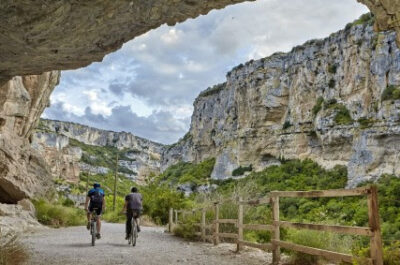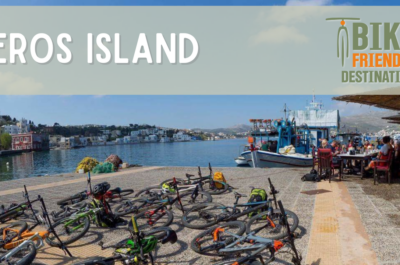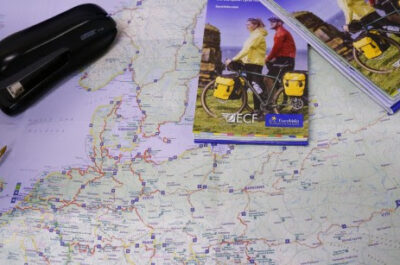Exploring the latest in European cycling tourism, from the surge in e-bike popularity to sustainable travel, and spotlighting Greece’s Bike Friendly Label initiative for cyclist-centric accommodations.
Cycling tourism in Europe is undergoing significant changes, adapting to new trends and demands from both experienced cyclists and newcomers to the activity. Here’s a summary of the latest trends in cycling tourism in Europe, the role of the EuroVelo network, and a case study on the Bike Friendly Label in Greece.
Latest Trends in Cycling Tourism in Europe
Growth in Cycling Tourism: Cycling tourism is seeing a resurgence in countries like Germany and Italy. In Germany, popular routes like the Elbe Cycle Route, Baltic Sea coast, and the Danube Cycle Route are part of the expansive EuroVelo network. Italy has witnessed a substantial increase in ‘pure’ cycling tourists, reaching 9 million, driven by the country’s rich natural and outdoor experiences (EuroVelo) (EuroVelo).
E-Bikes Rising Popularity: E-bikes are becoming a staple in cycling tourism, appealing to a broader audience by making cycling more accessible. They are particularly favored for their ability to help cyclists cover longer distances and tackle challenging terrains, making previously inaccessible areas reachable (CBI EU).
Sustainable and Eco-Friendly Travel: The sustainability aspect of cycling tourism is a significant draw. Cycling offers an environmentally friendly way to explore, and the infrastructure is gradually evolving to support this, with the EuroVelo network playing a crucial role in promoting sustainable tourism (EuroVelo).
Diverse Cycling Experiences: Cycling tourism in Europe caters to a wide range of interests and skill levels, from mountain bikers seeking challenging trails to leisure cyclists exploring the continent’s scenic beauty on e-bikes (CBI EU).
The Role of EuroVelo
The EuroVelo network is at the heart of these developments, aiming to expand and improve cycling infrastructure across Europe. With 64% of the network ready for use as of 2021, there is ongoing effort to achieve full completion and enhance connectivity with national and regional cycle networks. The EuroVelo Certification Standard aims to ensure high-quality infrastructure and services along these routes (EuroVelo).
Case Study: The Bike Friendly Label in Greece
Greece’s Bike Friendly Label exemplifies how countries are adapting to the rising interest in cycling tourism. This initiative recognizes accommodations and services that cater specifically to cyclists’ needs, offering secure parking, maintenance facilities, and customized services. It’s part of a broader strategy to make Greece a top destination for cycling enthusiasts by leveraging its diverse landscapes and cultural heritage.
Conclusion
Cycling tourism in Europe is flourishing, with an increasing number of travelers seeking out cycling experiences as part of their vacations. The expansion of the EuroVelo network and initiatives like Greece’s Bike Friendly Label highlight the ongoing efforts to cater to this growing market. Whether through the use of e-bikes, the push for sustainability, or the provision of cycling-friendly services, Europe is set to remain a premier destination for cycling tourists.
Theodore is the Co-Founder and Managing Editor of TravelDailyNews Media Network; his responsibilities include business development and planning for TravelDailyNews long-term opportunities.




























































































































































































